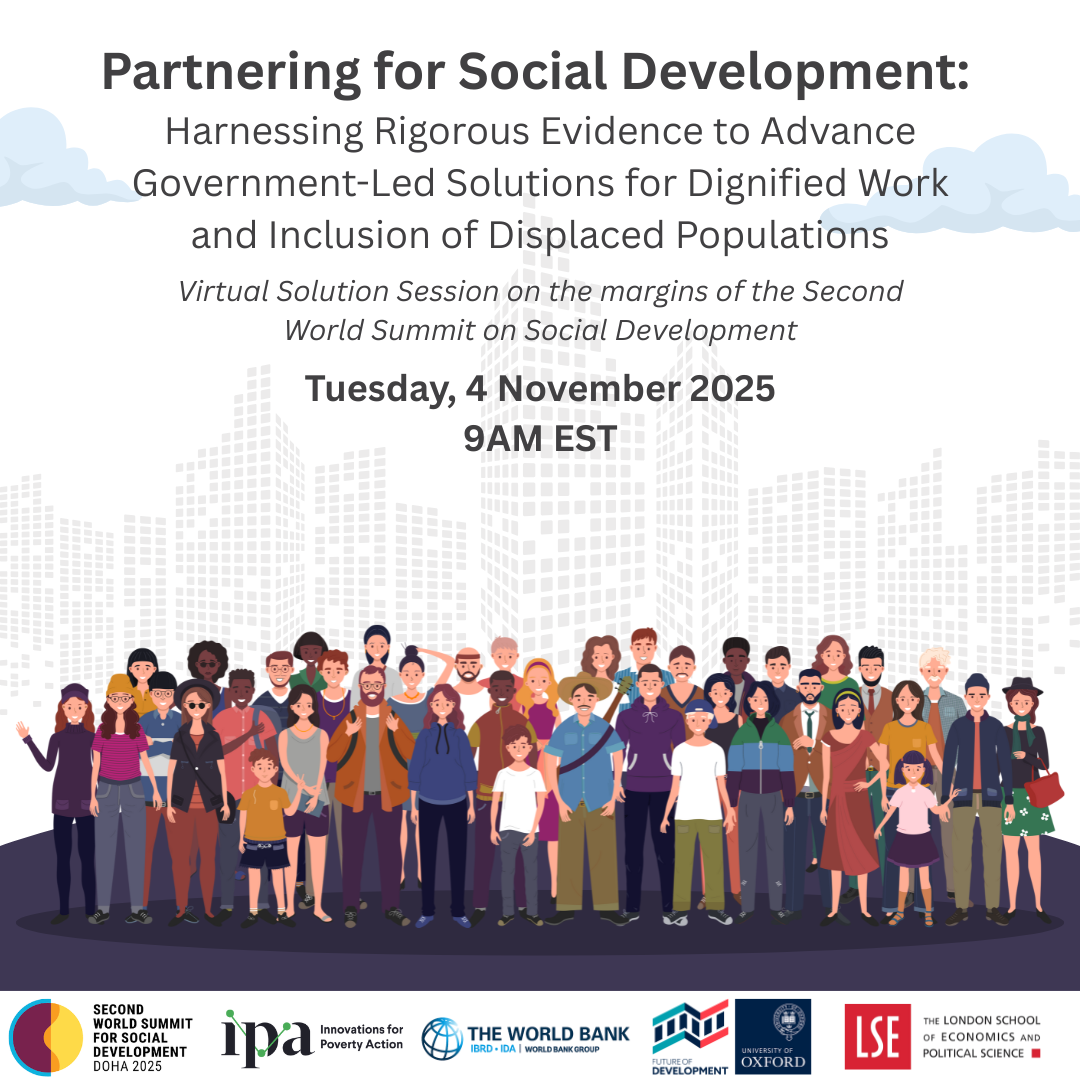Partnering for Social Development: Harnessing Rigorous Evidence to Advance Government-Led Solutions for Dignified Work and Inclusion of Displaced Populations
Hosted by Innovations for Poverty Action, in partnership with the University of Oxford, the World Bank, and the London School of Economics

Motivation
Access to dignified work for all is fundamental to achieving the Sustainable Development Goals. As global leaders convene to lay out a plan for the future of social development, millions—particularly displaced populations—remain excluded from stable and fair employment, often facing precarious, unsafe, or informal labor conditions. Ensuring universal access to dignified work is essential to uphold human rights, strengthen social cohesion, and build resilient communities that can thrive in the face of future challenges. With tightening international aid budgets, working hand-in-hand with host governments is more critical than ever to find and implement solutions for sustainable social development for displaced and host communities.
Summary
This panel session, aligned with the Second World Summit on Social Development’s priority of ensuring decent work for all, was hosted by Innovations for Poverty Action in partnership with the University of Oxford, the World Bank Development Research Group, and London School of Economics, with support provided by the Ethiopian Refugee and Returnee Services.
The session showcased the first rigorous, experimental evaluations of two large-scale government programs to support refugees in Ethiopia: (1) an evaluation of providing formal work permits and business licenses to refugees across four camps, and (2) an evaluation of refugee integration into national public works programs. These studies represent the first systematic evidence on how different policy instruments affect economic, employment, and inclusion outcomes for displaced populations at scale.
Researchers presented key insights and practical solutions from evaluations of public works programs and reforms expanding the right to work for refugees, demonstrating what these programs achieve in practice and what lessons may be transferable to other contexts. Senior officials from Ethiopia’s Refugees and Returnee Service shared their perspective on collaboration, including how research partnerships inform policymaking and strengthen government ownership, especially in times of shrinking development financing. They also addressed the challenges to meaningfully integrating refugees into national economies and society. Finally, policy partners discussed how such evidence-based solutions can sharpen social development strategies and financing to prioritize decent work outcomes, social protection, and inclusion of women and youth.
Participants left with concrete insights on how rigorous evidence can guide national displacement responses toward sustainable livelihoods and how partnerships with academia can further support this work. The session aimed to inform and foster meaningful dialogue on how to turn the right to work into a lived reality for all.
Watch the webinar recording below:












